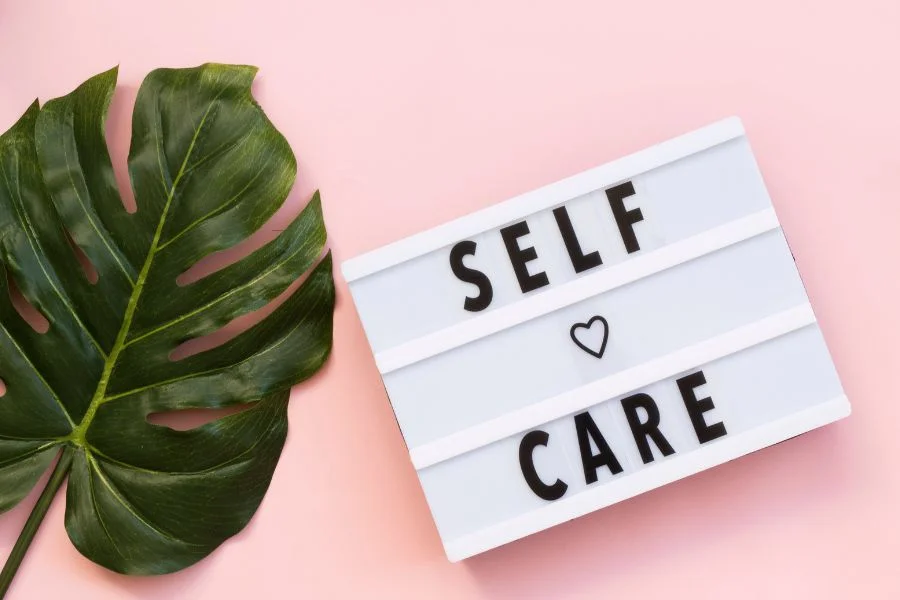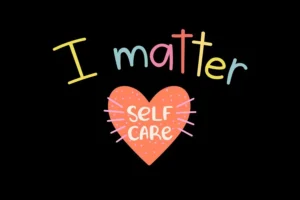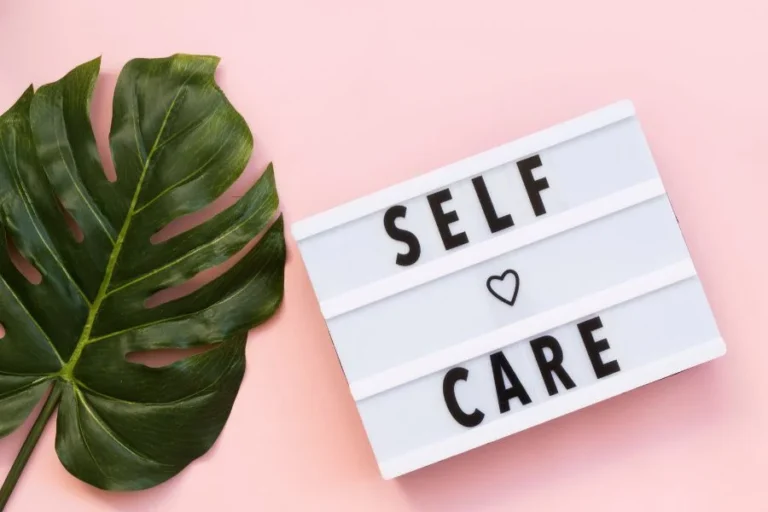Are you feeling overwhelmed and stressed? Find out how self care can change your life and improve your quality of life. In this article, you will be able to read about some of the basic self-care procedures that can make you feel refreshed and satisfied. You will get some specific advice that will improve your psychological, emotional and physical wellbeing.
At the end of this article, you will be able to understand what areas you require to work on in self-care and how to accomplish it effectively. Do not let negativity ruin your chances of becoming a better you; get up and start transforming into a healthier version now!
Table of Contents
What is Self Care?
Definition and Overview
Self care is a deliberate process by which a person takes care of his or her body and mind. It proves valuable for managing stress and balancing life’s stressors. Taking care of oneself is not selfish; instead, it’s a necessity for well-being.
Different Types of Self Care
Why Self Care is Important

Impact on Overall Well-Being
The self-care activity is an essential part of the life. It’s a balancing activity in the life of an individual. When you regularly engage in self-care, you:
- Boost Physical Health: Adequate nutrition, exercise, and rest strengthen the immune system and increase vitality.
- Improve Resilience: Caring for oneself increases the ability to manage stress and heal from adversities.
- Increase Productivity: Caring for oneself enhances concentration and effectiveness in executing tasks, which enhances productivity.
Connection to Mental and Emotional Health
Self-care has a close relation with mental and emotional health. It:
- Reduces Stress: Mindfulness and relaxation techniques are helpful in reducing stress. In fact, bedtime meditation can be particularly effective in helping you wind down and prepare for a restful night’s sleep, contributing significantly to stress reduction.
- Enhances Mood: Engaging in enjoyable activities and being around friends or family can help reduce anxiety or even depression.
- Supports Emotional Balance: Taking care of yourself on a daily basis makes it easier to control your emotions and create a good outlook on life. Understanding how emotions influence your decision-making process can also empower you to make better choices that positively affect your mood.
Examples of Self-Care
Everyday Practices
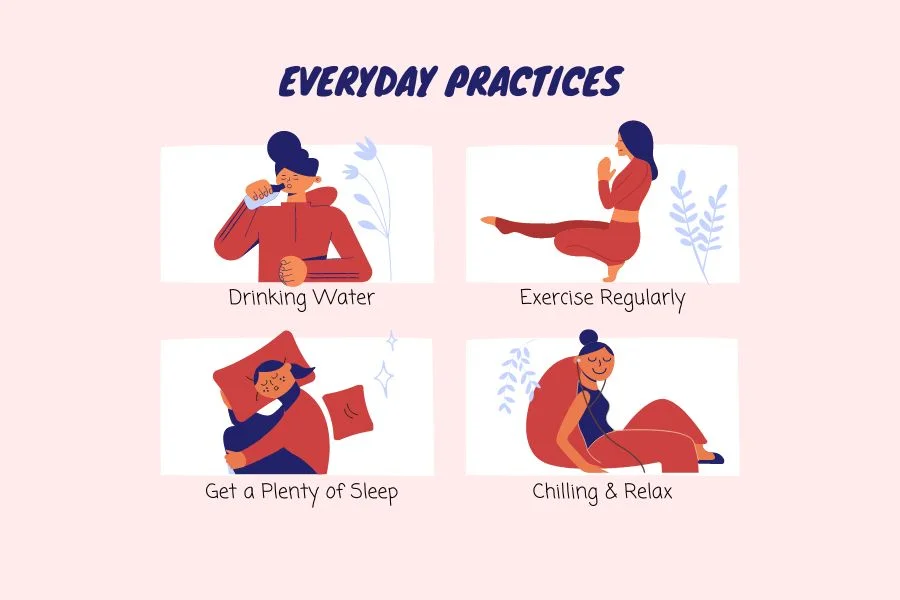
Self-care only sometimes means doing something big and grand. Incorporating simple practices into your daily routine can make a big difference:
- Morning Routine: Have a good breakfast, some stretching, or a few minutes of meditation to help you become more positive in the morning.
- Breaks: Rest your body regularly during the day by taking a walk or taking five or ten minutes to breathe deeply.
- Hydration: Ensure you take enough water to enable the body to operate effectively throughout the day.
Self-Care Activities for Different Needs
Self care activities can be designed to meet various needs:
For Physical Health
- Exercise: Do exercise or any activity that you enjoy, such as dancing or biking.
- Relaxation: Taking a warm bath or just a gentle stretch can help to reduce muscle tension.
For Emotional Well-being
- Journaling: Get a piece of paper and a pen and write down your thoughts and feelings to analyze them.
- Creative Outlets: Use art such as painting or creating items in order to express feelings.
For Mental Stimulation
- Reading: Read an excellent book as a way of amusing oneself and leaving everyday troubles behind.
- Learning: Further your education by taking an online course or trying a new hobby to engage your mind.
For Social Connection
- Quality Time: Make a telephone call or have a video call with a friend or a family member.
- Support Networks: Participate in the group or community with like-minded people for social support and engagement. Platonic relationships also play a key role in building strong, supportive connections.
For Spiritual Growth
- Meditation: Try mindfulness or meditation as a way to find inner peace and solve complex tasks.
- Nature Walks: Take walks and spend some time in an open space in order to balance your emotions and be closer to nature.
5 Benefits of Self-Care
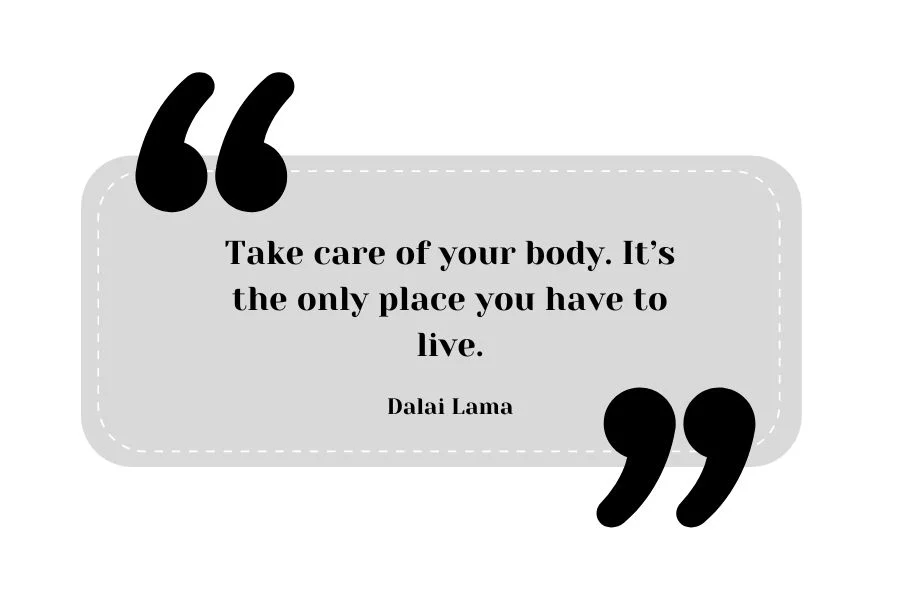
1. Enhanced Physical Health
Regular exercise, proper diet, and good sleep all contribute to improved physical health. These activities assist in improving the immune system’s functionality, gaining energy, and lowering the chances of acquiring long-term diseases. Applying self-care helps ensure the body is in its best state to perform its functions, especially in handling stress.
2. Improved Mental Clarity
Practicing mindfulness or simply participating in a hobby could significantly improve mental focus and clarity. Since these practices are relaxing, they act as a stress-relieving mechanism and, therefore, assist in reconfiguring the mind to enhance focus and cognition. If you take the time to do your mental health check, it enables you to face challenges with clarity and come up with the right solutions.
3. Reduced Stress Levels
Practical strategies such as deep breathing, meditation, and exercise are helpful in handling and minimizing stress. It is necessary to include these practices in daily life as they contribute to reducing cortisol levels, which in turn promotes constructive and positive thinking. This reduces stress, thereby enhancing the quality of people’s lives and preventing burnout.
4. Better Emotional Balance
Self-care makes it easier to regulate and channel your emotions in the right way. Some activities, such as writing down thoughts on paper, sharing with family/friends, or gratitude, can help maintain emotional strength and regulation. That is why by taking care of one’s emotions on a daily basis, you maintain a positive attitude, hence helping in dealing with stresses in life.
5. Strengthened Relationships
Self-care makes interpersonal relationships even better. Taking care of yourself means that your body and mind are ready and willing to spend time with other people. Thus, preserving one’s health helps to create and strengthen positive and helpful relationships with friends and family members.
Including intimacy exercises into your routine can further enhance your connections, helping to create and strengthen positive relationships with loved ones.
Mental Self Care

Strategies for Cognitive Health
1. Practice Mindfulness
When one practices meditation, it is easier to pay attention and understand things better. Daily mindfulness could improve cognitive performance by decreasing stress and promoting relaxation.
2. Set Realistic Goals
Try to divide work into more manageable chunks. When people establish realistic goals, motivation levels are kept high, and stress is minimized.
3. Prioritize Sleep
Make sure that you have enough quality hours of sleep every night. Healthy sleep habits are beneficial to one’s mental well-being as they enhance memory, problem-solving, and overall mental performance.
4. Stay Organized
Employ tools like organizational apps, calendars, and to-do lists to stay focused and clear-headed. When things are organized well, cognitive efficiency improves, and mental clutter decreases.
Exercises for Mental Stimulation
Engage in Puzzles and Games
Games such as crosswords, Sudoku, or strategy games are beneficial in enhancing brain activity and problem-solving skills. Playing such games regularly helps sharpen your mind.
Read Regularly
Reading, especially books, articles, or even academic papers, keeps one’s mind active all the time. Reading books on various fields and topics helps widen knowledge and sharpen the mind.
Learn New Skills
Learn a new sport, musical instrument, language or arts and crafts like knitting or sewing. New learning experiences elicit an increased brain function and enhance mental development.
Emotional Self Care

Practices for Emotional Balance
- Journaling: Try to sort all the feelings out by writing them down in order to help with stress.
- Express Emotions: Connect with friends, family, or a professional therapist to express what you are feeling and be heard.
- Relaxation Techniques: To manage stress and maintain calm, try exercising deep breathing techniques, meditation, and muscle relaxation.
- Set Boundaries: Learn to set boundaries and make time for yourself to save your emotional state.
Building Emotional Intelligence
- Self-Awareness: Closely observe feelings and behavioural patterns to understand your triggers.
- Practice Empathy: Try to understand others’ feelings to have a closer and warmer human bond.
- Reflect on Reactions: Reflect on your emotions and behaviors to assess what went wrong and how it can be avoided in the future.
- Improve Communication: Learn how to identify and communicate emotional states effectively to improve interpersonal communication and minimize the occurrence of misunderstandings.
Self-Care Tips for Mental Health

- Progressive Muscle Relaxation: Contract and then release each muscle group to release physical and mental tension.
- Create a Relaxing Routine: It is also essential to incorporate into the daily schedule some excellent activities to get rid of tension, such as having a bath or listening to music.
- Practice Gratitude: Writing down what one is thankful for daily can help relieve some of the pressure created by stressors and help one focus on the good aspects of life.
- Limit Screen Time: Limit screen time, particularly in the evening, to minimize mental stimulation and encourage restful periods.
- Mindful Eating: Mindful eating can also be a method of exercising attention during food consumption while focusing on the taste and texture of the food.
- Art Therapy: Painting or sculpting, for instance, as a way of channelling emotions, helps avoid the buildup of stress.
Top 10 Self-Care Tips
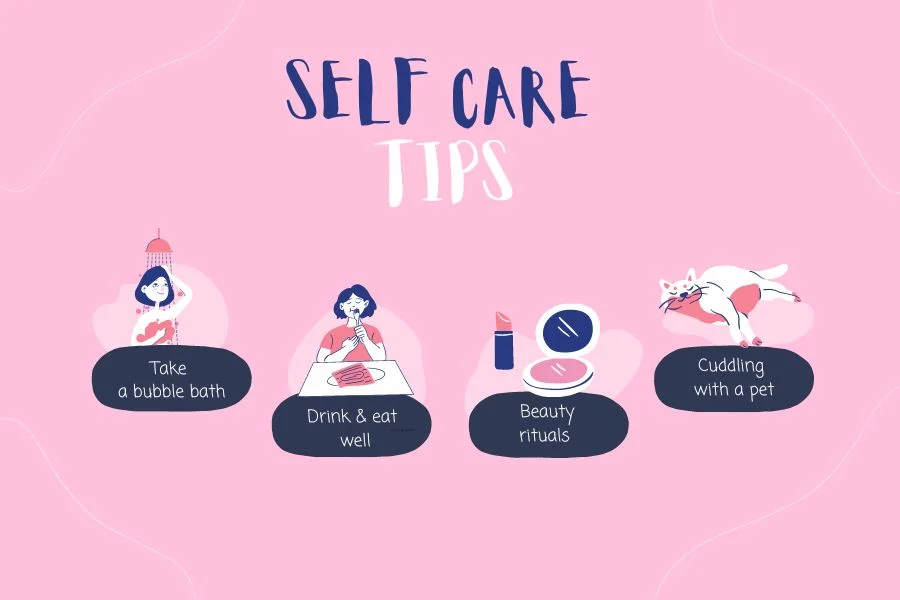
- Start Your Day with Intention: Establish morning rituals, such as exercises, meditation, or eating a healthy breakfast, to kick start the day.
- Stay Hydrated: It is also essential to stay hydrated and drink a lot of water during the day to ensure that the body remains healthy.
- Move Your Body: Exercise 30 minutes daily in some form; it can be a workout, a nice walk, or even dancing.
- Mindfulness Breaks: It is a good idea to pause briefly to meditate or to take some deep breaths to reduce stress levels and enhance focus.
- Healthy Eating: Emphasize quality meals that contain fruits, vegetables, and whole-grain foods, which support overall health.
- Set Boundaries: Maintain clear boundaries between work and other aspects of life to prevent burnout and ensure you have time for relaxation.
- Schedule Self-Care Time: Set your weekly timetable and Allocate specific times to hobbies, relaxation, or interacting with friends and relatives.
- Create a Relaxing Evening Routine: To ensure a relaxed sleep, one can read a book, keep a diary, or have a warm bath before going to sleep.
- Connect with Loved Ones: Ensure one makes time to interact with friends and family, either physically or virtually, in order to receive emotional support.
- Reflect and Adjust: It is recommended to periodically review your self-care habits and modify them based on your experiences and preferences.
How to Create a Self-Care Plan
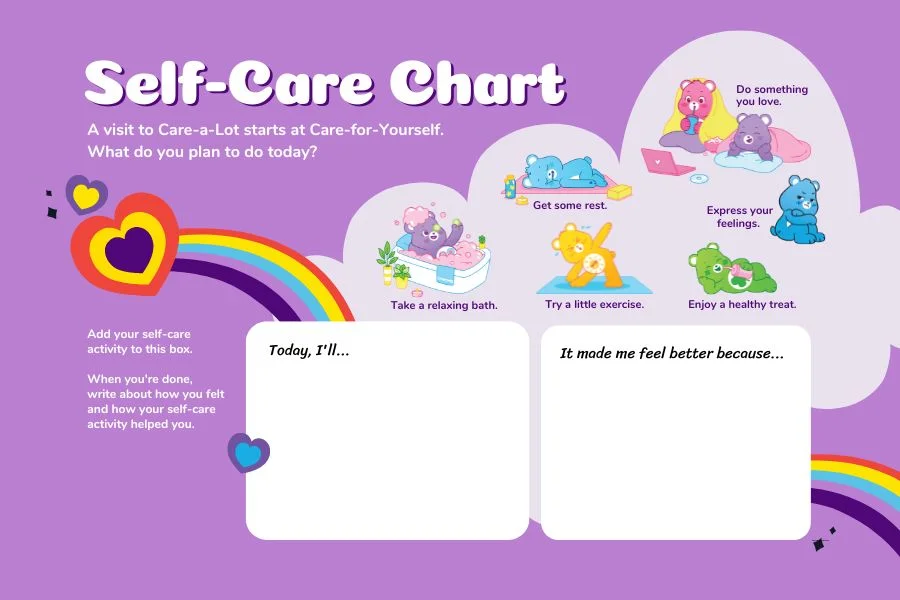
Steps to Design a Personalized Plan
- Assess Your Needs: Evaluate your physical, emotional, and mental requirements. It is essential to find out which aspects require more of your attention and progress.
- Choose Activities: Choose self-care activities that best suit your needs or those that you prefer. Make sure to maintain a balance of physical, emotional, and cognitive activities, including exercise, relaxation techniques, hobbies, etc.
- Schedule Time: Assign special hours in the day or week to practice self-care. These times must be realistic and strictly adhered to to be effective.
- Set Priorities: Decide which self-care activities you want to do most and order them in your plan. Invest time in the aspects that are most rewarding to you.
- Monitor Progress: Evaluate and monitor the effectiveness of your self-care plan in your life. It is advisable to make some modifications depending on your current requirements.
Setting Achievable Self Care Goals
- Be Specific: Set clear, well-defined objectives, e.g., “I will walk for thirty minutes three times a week” or “I will meditate for ten minutes every morning.”
- Start Small: To prevent getting overwhelmed, start with small, achievable goals. As you develop the habit, progressively increase the depth or frequency of your self-care routines.
- Track Your Objectives: Use a planner, notebook, or app to track your achievements. Also, consider the effects your activities have on your well-being.
- Celebrate Your Successes: To maintain motivation, recognize and honour minor victories. Reward yourself for meeting your self-care objectives.
- Adjust as Needed: If your requirements change or goals become too complex, be adaptable and ready to alter. Make any adjustments to your strategy to keep it up-to-date and beneficial for you.
Key Takeaways
- Self care refers to the activities that you consciously undertake to foster a healthy body and mind. Self-care has different forms, including physical, emotional, social, mental, and spiritual self-care.
- Self care promotes general wellness by improving physical health and mental state, decreasing stress, and increasing positive emotions.
- Basic routines such as maintaining a morning routine, drinking water, and engaging in hobbies can greatly enhance one’s daily activities.
- In essence, self-care results in enhanced physical and mental health, the ability to handle stress, emotional balance, and stronger relations.
- Design a personalized self care plan by assessing your needs, choosing relevant activities, scheduling time, setting priorities, and monitoring progress. Set specific, achievable goals and adjust them as needed.
Pro Tip From Basics of Psychology
Make self care a habit by taking a mere 10 minutes of your day to take a break and practice mindfulness. Focus on your breathing, stand up and stretch, or close your eyes and rest. Taking short breaks can also significantly reduce stress and improve productivity, so achieving balance in a fast-paced life can be easily achieved.

